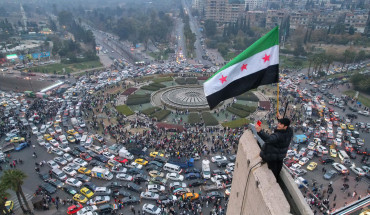Defying U.S. pressure, Iranian leaders said on Monday that they would not allow international inspectors to visit the country’s military sites. Speaking on the sidelines of a meeting with visiting chief of the International Atomic Energy Agency Yukiya Amano in Tehran, Ali Akbar Salehi, the head of the Atomic Energy Organization of Iran, claimed that there are no provisions within the 2015 nuclear agreement or in the Additional Protocol that would obligate Tehran to permit foreign inspection of its military installations. Salehi further noted that Amano did not request such permission in his latest visit. The top Iranian nuclear official warned Washington that the Islamic Republic could resume 20 percent enrichment at Fordo facility within four days if the U.S. fails to honor its commitments and re-imposes sanctions.
Separately, the deputy commander of Iran’s Army also ruled out foreign inspection of the country’s military sites. “No individual or country will be permitted to visit our military centers,” Brigadier General
In addition, a prominent Iranian cleric echoed a similar view. “It is no one’s business where our military weapons and missiles are located. We will never allow foreigners to inspect our weapons,” Ayatollah Hossein Nouri Hamedani told a gathering of Iranian law enforcement forces today. He also urged Iranian officials to take a more aggressive approach to confront the United States. “The Supreme Leader has said that we did not achieve any progress whenever we took a soft approach in dealing with the enemy and we succeeded whenever we acted forcefully.”
Comment: The remarks by Iranian leaders came during Amano’s visit to Iran. The I.A.E.A. director-general held talks with President Hassan Rouhani, Foreign Minister Javad Zarif and Salehi in Tehran, and reiterated that Iran was adhering to its commitments under the nuclear agreement. While the I.A.E.A. has confirmed Iran’s compliance eight times since the nuclear deal was signed two years ago, the Trump administration has raised the concern that I.A.E.A. inspectors do not visit Iran’s military sites to ensure there are no covert nuclear programs.
In August, U.S. Permanent Representative to U.N. Nikki Haley visited the I.A.E.A. office in Vienna to urge the international watchdog to inspect Iran’s military bases. "As good as the IAEA is, it can only be as good as what they are permitted to see," Haley said after returning from Vienna. "There are also numerous undeclared sites that have not been inspected yet," she added. "That's a problem." She continued: "I have good confidence in the IAEA, but they are dealing with a country that has a clear history of lying and pursuing covert nuclear programs.”
On July 27, the Associated Press reported that the Trump administration was pushing for inspections of “suspicious Iranian military sites” to test the usefulness of the nuclear deal Iran signed with the United States and five other world powers two years ago. Since then, Iranian officials have responded angrily to the report and have ruled out any inspections of the country’s military centers. This is despite the fact that Tehran had agreed under the Additional Protocol of the nuclear accord that it would provide United Nations inspectors with limited access to any site suspected of illicit nuclear activity.
The Middle East Institute (MEI) is an independent, non-partisan, non-for-profit, educational organization. It does not engage in advocacy and its scholars’ opinions are their own. MEI welcomes financial donations, but retains sole editorial control over its work and its publications reflect only the authors’ views. For a listing of MEI donors, please click here.













